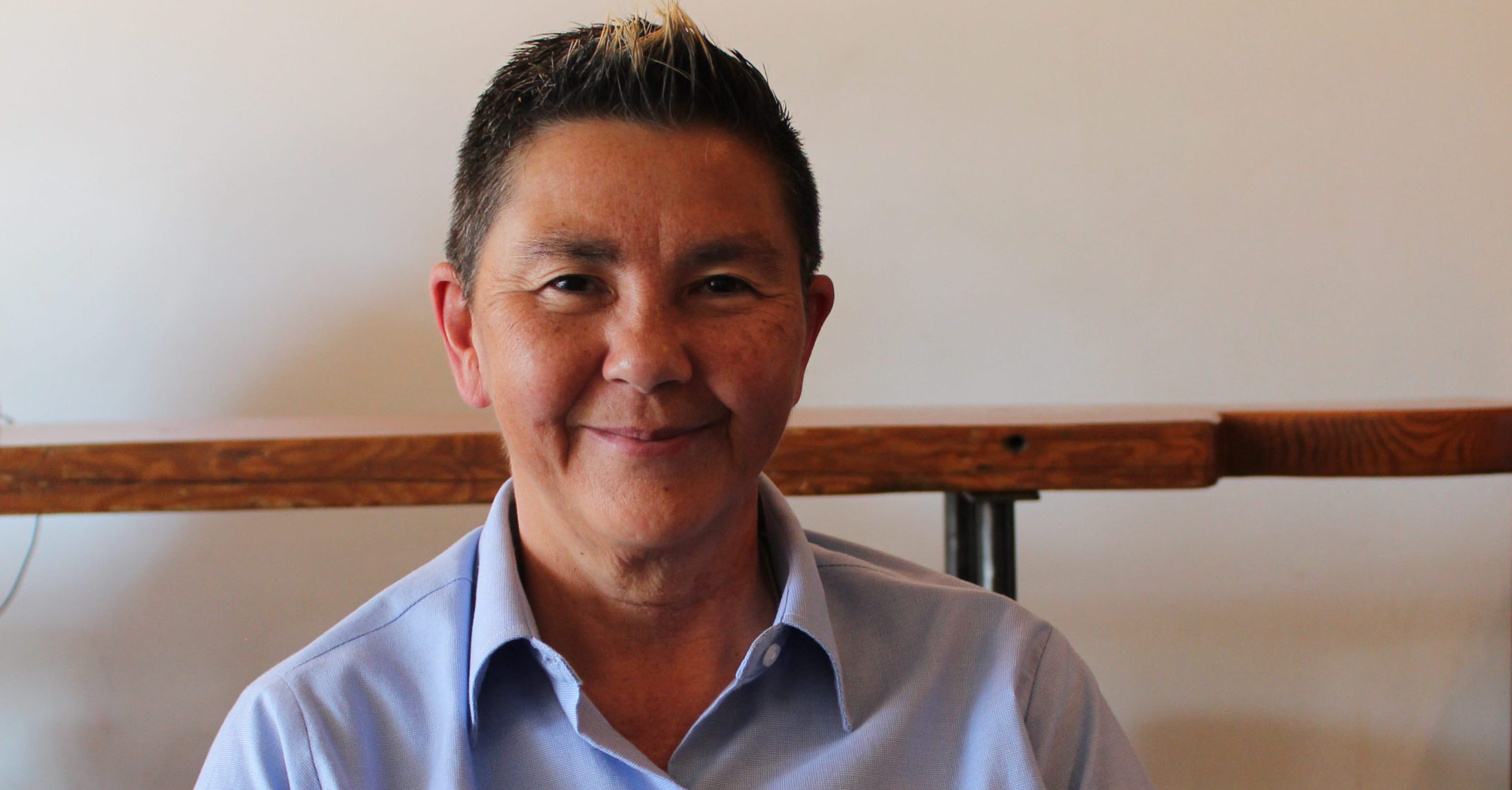Of the many human rights hearings she attended over the years, Mary-Woo Sims remembers one powerful testimony in particular from a woman who stood up and identified herself as trans at a hearing in Surrey two decades ago.
“She lost her job, she lost her family, and she basically had to start all over again as the person she knew she always was but wasn’t really accepted,” says Sims, who was chief commissioner of the BC Human Rights Commission at the time.
“She didn’t want anybody to have to go through what she went through.”
The hearing was part of a province-wide series asking British Columbians what kinds of human rights protections they wanted to pass on to the next generation. The series resulted in the 1998 report Human Rights For The Next Millennium, which recommended, among other things, that gender identity be protected from discrimination.
That this woman had the courage to stand up publicly in the Vancouver suburb of Surrey — which was less than welcoming to LGBT people at the time — to push for human rights for trans people, impressed Sims.
“I think she moved a lot of people that may not have understood why gender identity was a necessary ground of discrimination,” says Sims, who is a lesbian.
Four years after the commission launched its groundbreaking provincial discussion, Sims’ term was abruptly cut short when the BC Liberal government very publicly fired her on July 26, 2001.
It happened in the middle of question period in the legislature, after gay MLA Lorne Mayencourt fed a question to the new attorney general, Geoff Plant, about changes coming to the BC Human Rights Commission.
Plant said the firing was a necessary first step towards a government review of human-rights administration in the province; he abolished the commission altogether a year later, leaving only the tribunal to investigate, adjudicate and educate the public around all human rights complaints in BC.
Sims says her firing was politically motivated. She was an outspoken critic of the then-new BC Liberal government and its spending cuts, and was about about to investigate human-rights abuses suffered by First Nations communities, such as the significant gap between Indigenous and non-Indigenous graduates.
“I don’t think the government wanted somebody in that position that was going to speak out, in an official capacity, against some of the cuts that they have now delivered,” Sims told Xtra in March 2002, eight months after she was fired.
Human rights reinstated
Fifteen years after the BC Liberals abolished the human rights commission, the new NDP government announced on the eve of Pride 2017 that it will reinstate it. Until now, British Columbia has been the only province without such a commission.
The NDP says the commission is necessary because too many people in the province still experience various forms of discrimination, and that all British Columbians need equal access to human-rights protection.

Premier John Horgan tells reporters in August that the commission can raise awareness about intolerance “so together as a community we can stamp it out.” Credit: Robin Perelle/Xtra
“We’ve made a commitment in the election that we want to make an inclusive society where people have respect for their neighbours,” says Ravi Kahlon, the parliamentary secretary for sport and multiculturalism, who has been tasked with leading the consultation on the commission’s reinstatement. “This will be a first critical step to continue that.”
At the Aug 4, 2017, announcement, Attorney General David Eby called the commission a “huge priority,” and said the NDP did not want to rush its implementation.
A website was launched in late September asking for testimonials from the public.
”They’ve asked me to go out and speak to community groups and stakeholders and find out what folks think about the commission . . . what should some of the priorities be for the commission,” Kahlon says.
The biggest challenge so far is that the government needs to build respect and trust with the public, he adds.
“We don’t have that unfortunately right now,” he says. “People who have faced human-rights violations are often experiencing trauma with it and don’t want to share in public.”
The deadline for public consultations is Nov 17, 2017. Kahlon says he intends to have a report to the attorney general by the end of this year.
What should the new commission look like?
In its previous incarnation, the commission served many functions, including launching public education initiatives, supporting people through the complex complaint-filing process, and identifying which cases should move forward to the human rights tribunal for a hearing.
The administrative help provided by the commission was invaluable, says lawyer and LGBT rights champion barbara findlay.
“For people who are marginalized and discriminated against, making your way through a bureaucracy like the human rights tribunal on your own is just not feasible,” findlay says.

Lesbian lawyer barbara findlay has represented many groundbreaking human rights cases in BC. Credit: Layla Cameron/Xtra
Not having a commission also insinuates that human-rights violations are just individual issues that can be dealt with on a case-by-case basis, findlay points out. But Indigenous people, people of colour and queer people continue to experience inequalities and discrepancies when it comes to basic human rights, she says.
“There’s systemic discrimination, which starts in the school system, in the cultural institutions — it’s embedded in the way people think,” she explains, “and that kind of systemic oppression is what keeps marginalized communities down.”
Under the previous regime, people had just six months to file a complaint with the commission from the moment their rights had been violated, findlay notes. That’s not enough time to develop an adequate understanding of the legal process, let alone to file a complaint. “Unless you have some legal help, you’re going to fail.”
She hopes the new human rights commission will once again assist people with filing their complaints and hopes it will give them a year rather than six months to file. She also hopes the new commission will avoid the backlogs that for awhile plagued the previous incarnation.
“It felt like filing a human-rights complaint with the commission was like dropping it into a bottomless pit. You had no idea if and when it would ever resurface,” she says.
Sims, who inherited a backlog of approximately 1,000 cases from the commission’s predecessor, says she and her staff were eventually able to streamline the process and get the turnaround time down to six months for most cases. She hopes complaints will go through a “triage” process this time and be sorted into early resolution or mediation, investigative cases that need to go to the tribunal, and systemic issues.
Sims and findlay both hope that the commission will renew its public education campaigns, especially around racism (whose instances are on the rise, Sims notes) and gender identity, which finally got protected a year ago (eighteen years after the commission recommended it) but has yet to see an education campaign.
Sims says the more tools that are provided to employers, service providers and the public, the better equipped they’ll be to respect different gender expressions.
“The commission should really be a last resort,” she says. “When complaints happen, I think that’s too late. Somebody’s life has been affected.”
Kahlon confirms the new commission “will have a very heavy public education mandate.”
“BC used to be a leader, and we have fallen way back,” he says.
Kahlon says the budget for the commission won’t be set until its roles are determined, though Sims says it’s crucial that the commission be adequately funded.
Sims emphasizes that the commission must also be independent of the government, since the government is potentially one of the largest respondents in complaint cases (most British Columbians either use its services, are employed by it, or accommodated by some form of government assistance).
Sims says people can’t defend themselves from human-rights abuses without the support of a commission. Without it, such abuses will “slowly destroy their souls.”
“That’s what discrimination does. It destroys your soul to be treated in a way that you can’t fight back against, you can’t do anything about it because that’s your race or because that’s your disability or that’s your religious belief,” she says. “It doesn’t have to be that way.”


 Why you can trust Xtra
Why you can trust Xtra


